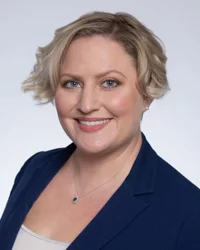An ongoing hot button issue in California workers’ compensation remains the specialty selected for the Panel Qualified Medical Evaluator as it is generally the defense’s opportunity to have the injured worker evaluated by a neutral medical-legal physician after being referred to his own Primary Treating Physician. But can the specialty be a moot issue if you can just request a second Panel when you are “lucky” enough to have the first evaluator admit that another opinion may be necessary?
The procedures for obtaining an initial QME panel under Labor Code §§4060, 4061, 4062 are well-established under statutory authority and case law, but there has been little guidance as to when an additional QME panel becomes necessary under Section 31.7 1.
Section 31.7(a) requires parties to first “obtain a follow-up evaluation or a supplemental evaluation from the same evaluator” in the event of a new medical dispute. However, an additional panel may issue “upon showing of good cause that a panel of QME physicians in a different specialty is needed to assist the parties [to] reach an expeditious and just resolution of disputed medical issues in the case.” Section 31.7(b) (emphasis added) Further exceptions exist for unrepresented injured workers and acupuncturist QMEs.
The WCAB recently examined the appropriateness of obtaining an orthopedic QME panel after the initial chiropractic QME referred the injured worker “to an orthopedic specialist for further evaluation and treatment.” Sosa v. Advanced Knitting Mills, 2018 Cal.Wrk.Comp.P.D. LEXIS 193.
In Sosa, the applicant’s attorney refused to sign a joint request for an orthopedic panel. The defendants set the matter for trial and received an Order from the judge for a second QME panel in orthopedics. The WCAB granted the applicant’s Petition for Removal from the Order, stating in part that because treatment is inconsistent with and in fact precluded by a physician’s role as a QME, the initial QME was simply making a treatment recommendation. It was further noted that the QME did not include in his report “any language . . . stating that there is a disputed medical issue outside of the scope of his practice area and clinical competency requiring an additional panel.” The lack of citation to other WCAB opinions is notable, establishing this as a case at the forefront of the issue. 2
So when is a second, third, fourth, or umpteenth QME panel in a new specialty appropriate? Filling in the gaps from the WCAB’s opinion in Sosa suggests that it may be when evaluation in a different specialty is requested by a QME because an issue is outside of his scope of practice.
Let’s not forget, however, that the statute requires a “disputed medical issue” and “good cause.”
The WCAB in Sosa relied solely on statutory language from the California Code of Regulations and the Labor Code to interpret when additional specialties are needed, but there is little to no discussion as to what a “disputed medical issue” is and when there is “good cause” to develop it with an additional Panel. This author therefore proposes that we again turn to the legislature’s work in determining what constitutes a “disputed medical issue.”
Labor Code §4062.2(a) expressly confirms that its provisions are to be used “[w]henever a comprehensive medical evaluation is required to resolve any dispute arising out of an injury or claimed injury,” and it governs the process by which a QME panel can be obtained where the injured worker is represented by counsel – by “request for a medical evaluation pursuant to [Labor Code] §4060” or following objection pursuant to Labor Code §§4061 or 4062. (emphasis added).
These requests generally follow when a case is denied or accepted, respectively. There is no indication that these procedures apply strictly to the first request for a QME panel, and indeed, the strike process outlined in subsections (b), (c) is one which indisputably applies to additional panels. Therefore, it would seem that best practice in keeping with the legislature’s intent would be to request a medical evaluation in additional specialties in keeping with Labor Code §4060 where the claim is denied or to issue an objection under Labor Code §§4061 or 4062 in the event that any body parts are accepted.
As to whether the specialty of the physician to whose report is being objected will be relevant to the specialty requested for the new panel… well, that remains to be seen.
Kimberly R. Wagner is the Managing Attorney of the Bradford & Barthel Ventura office and is currently working toward a specialist certificate in workers’ compensation. Ms. Wagner can be reached at kwagner@bradfordbarthel.com or (805) 677-4808.
1 References herein to “Section” are to the California Code of Regulations unless otherwise specified.
2 Sosa v. Advanced Knitting Mills, 2018 Cal.Wrk.Comp.P.D. LEXIS 193 has not been designated a “significant panel decision” and is not en banc, therefore not binding. However, its dicta may be found persuasive by the WCAB, and it has been deemed “noteworthy” by the Lexis Nexis editorial consultants for its commentary on undeveloped legal issues.
Viewing this website does not form an attorney/client relationship between you and Bradford & Barthel, LLP or any of its attorneys. This website is for informational purposes only and does not contain legal advice. Please do not act or refrain from acting based on anything you read on this site. This document is not a substitute for legal advice and may not address every factual scenario. If you have a legal question, we encourage you to contact your favorite Bradford & Barthel, LLP attorney to discuss the legal issues applicable to your unique case. No website is entirely secure, so please be cautious with information provided through the contact form or email. Do not assume confidentiality exists in anything you send through this website or email, until an attorney/client relationship is formed.


